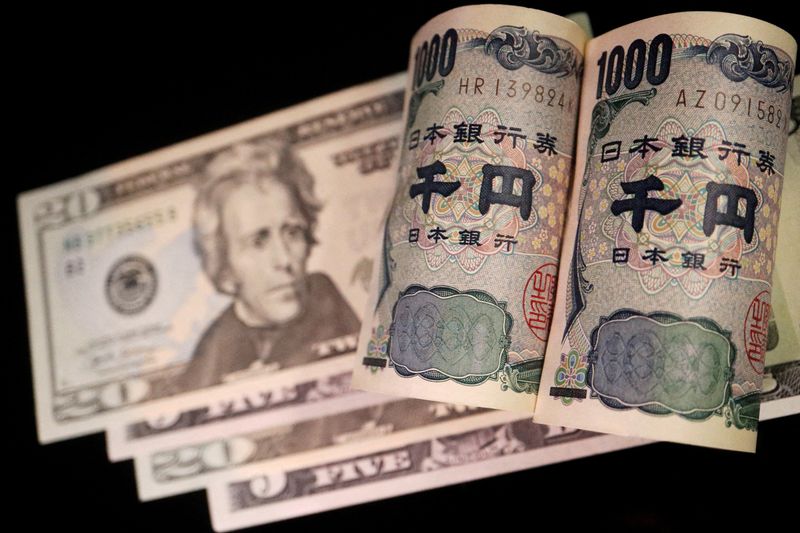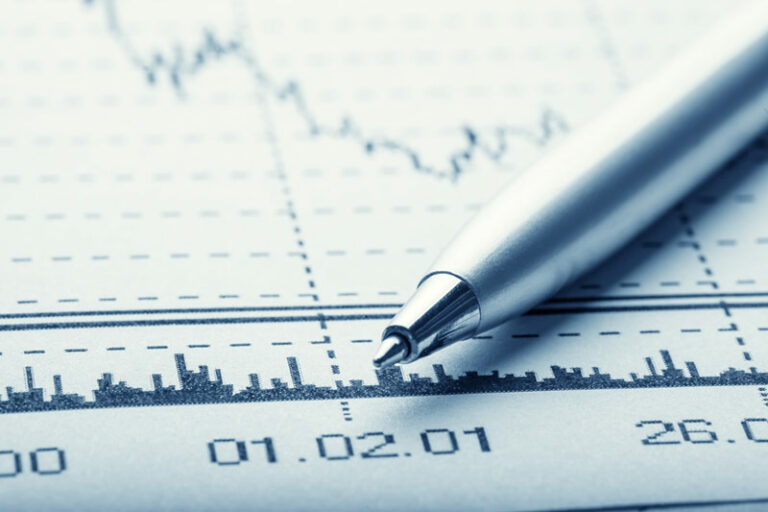
© Reuters. FILE PHOTO: Banknotes of Japanese yen and U.S. dollar are seen in this illustration picture taken September 23, 2022. REUTERS/Florence Lo/Illustration/File Photo
By Rae Wee
SINGAPORE (Reuters) – The yen dwindled near the 150 per dollar level on Tuesday but held its ground ahead of a pivotal policy decision from the Bank of Japan (BOJ), while the U.S. dollar towered over its peers as bets for early rate cuts there were trimmed.
Rate decisions from the BOJ and the Reserve Bank of Australia (RBA) come under the spotlight in the Asia day, and currency moves were subdued early on Tuesday with traders hesitant to take on new positions ahead of the outcomes.
The yen was last little changed at 149.14 per dollar, while the Australian dollar fell 0.06% $0.6556.
The BOJ, in particular, takes centre stage, given swirling speculation that the dovish central bank could finally phase out years of uber-easy policy at the conclusion of its two-day policy meeting on Tuesday.
Against the euro, the yen steadied at 162.18, with the Japanese currency likewise little changed against the at 97.78.
The newspaper reported on Monday the BOJ is set to decide on ending its negative interest rate policy and also call time on its yield curve control and purchase of risk assets at this month’s meeting.
“If they do hike… I think we have to wait at least several more months for the subsequent hike into positive territory,” said Gareth Berry, FX and rates strategist at Macquarie.
“It’s not going to be back-to-back March and April hikes. There will be grounds for pause… they’re not in a rush.”
Japanese policymakers have been quick to caution that accommodative monetary conditions will likely remain even after the BOJ ends its negative interest rate policy, tempering any market expectations for a hawkish shift in the central bank’s policy stance.
That would likely keep the yen under pressure in the near term as well, given still-stark interest rate differentials between Japan and the United States, and as bets the Federal Reserve is likely to keep rates higher for longer ramp up.
“Anytime the Fed and the BOJ are moving policy settings at about the same time, it’s always the Fed that rules and dominates the price action, even in dollar/yen. So BOJ’s decisions generally are, as far as the yen is concerned, a matter of secondary importance,” said Berry.
RATES OUTLOOK
Down Under, expectations are for the RBA to keep rates on hold later on Tuesday, with major local banks in Australia forecasting no change in rates until at least end-August.
“Holding policy rates steady and policy guidance broadly unchanged seems like a reasonably straightforward decision in the presence of high uncertainty,” said Carl Ang, fixed income research analyst at MFS Investment Management.
“Overall, greater clarity on the outlook for inflation and its return to target seems like a necessary precursor to more dovish signalling and possibly lower rates by year-end.”
The Aussie found some support at the start of the week from better-than-expected Chinese data, but due to a resurgent U.S. dollar, it was still some distance away from a roughly two-month high of $0.6667 hit earlier in the month.
The New Zealand dollar was similarly pinned near Monday’s two-week low and last bought $0.6079.
Elsewhere, the euro rose 0.02% to $1.08735, having touched a two-week trough of $1.0866 in the previous session.
Sterling fell 0.05% to $1.2723.
A rebound in the greenback – helped by a recent run of resilient U.S. economic data pointing to still-sticky inflation, has paused the dollar’s decline as investors adjust their expectations of the pace and scale of Fed cuts this year.
That comes ahead of the Fed’s policy decision also due this week, where focus will be on any clues for how soon the central bank could commence its rate easing cycle.
“We expect the FOMC to continue to show a three-cut baseline for 2024 at its March meeting and have lowered our own forecast to three cuts vs four previously in 2024,” said Goldman Sachs chief U.S. economist David Mericle in a client note.
Against a basket of currencies, the dollar rose 0.02% to 103.60, after having touched a roughly two-week high of 103.65 in the previous session.


